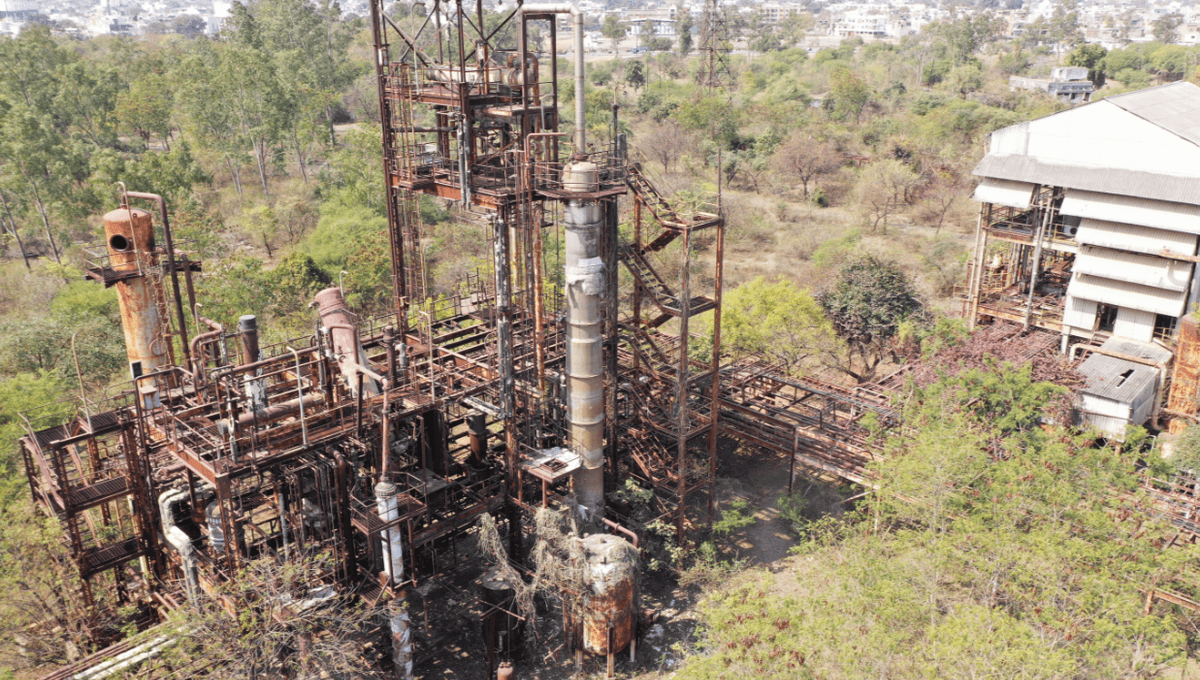
In 1984, a city in India saw one of the worst-ever industrial accidents on Earth. A pesticide plant in Bhopal spewed over 40 tons of toxic gas into the surrounding city, immediately killing thousands of people and spelling premature death for many thousands more. The tragic disaster is the subject of a new miniseries on Netflix – The Railway Men – but the real story is far from over. As shown by a recent study, the legacy of this catastrophe still lives on.
The incident unfolded on the night of December 2-3, 1984, when the Union Carbide pesticide plant in Bhopal leaked around 40 tons of methyl isocyanate, an extremely toxic gas with a pungent odor, which spread across a 7-kilometer (4.3-mile) radius of the plant.
The cloud of gas hung close to the ground and made its way through the sprawling low-cost housing that surrounded the factory. Victims of the exposure were writhing in pain and succumbing to extreme nausea, intense burning of the eyes, and frothing of the mouth. Amnesty International claims 7,000 people died in the following three days while countless more were injured.
This was just the beginning of the horrors. In the following three decades, up to 30,000 deaths in the region have been attributed to the incident, owing to the lasting impact of the chemical leak on human health and the surrounding environment.
In June 2023, researchers at the University of California San Diego published a paper looking at the lingering toll of the catastrophe and argued its impact is even more widespread than previous estimates.
To reach this conclusion, the team studied 47,817 people aged 15-49 years old living in Madhya Pradesh between 2015 and 2016, as well as socioeconomic data on 13,369 men born between 1960 and 1990, plus data on 1,260 people who were born between 1981 and 1985 within 250 kilometers (155 miles) of Bhopal.
“There were serious long-term and chronic health consequences for thousands of survivors, including respiratory, neurological, musculoskeletal, ophthalmic and endocrine impacts,” Prashant Bharadwaj, study co-author and professor in UC San Diego’s Department of Economics, said in a statement.
Most shockingly, the researchers found evidence of long-term, multi-generational impacts of the disaster.
There was a particularly pronounced effect on children born in the wake of the incident. Following the leak, there was a fourfold increase in the rate of miscarriage, as well as an increased risk of stillbirth and neonatal mortality.
“[T]he Bhopal gas disaster in December 1984 [may] have led to men who were in utero at the time of the accident having a higher risk of developing disabilities and cancer later in life. The results also suggest that the Bhopal gas disaster affected people across a substantially more widespread area than has previously been demonstrated,” continued Gordon McCord, study author and associate teaching professor at the UC San Diego School of Global Policy and Strategy.
Many victims of the incident are still seeking justice. In 1989, Union Carbide agreed to pay $470 million to people affected by their plant’s accident. Campaigners have consistently pushed for more compensation, but it has proved to be a difficult battle. In March 2023, India’s Supreme Court rejected a plea seeking more compensation and Dow Chemicals, which bought Union Carbide in 1999, argued that the 1989 settlement was fair and final.
The researchers from this latest study at UC San Diego believe their work could provide further evidence needed to quantify the true damage of the disaster.
“These results indicate social costs stemming from the BGD [Bhopal gas disaster] that extend far beyond the mortality and morbidity experienced in the immediate aftermath. Quantifying these multigenerational impacts is important for policy consideration. Moreover, our results suggest that the BGD affected people across a substantially more widespread area than has previously been demonstrated,” the study authors write in their conclusion.
The study is published in the journal BMJ Open.
Source Link: Bhopal Gas Tragedy: The World's Worst Industrial Disaster Lives On